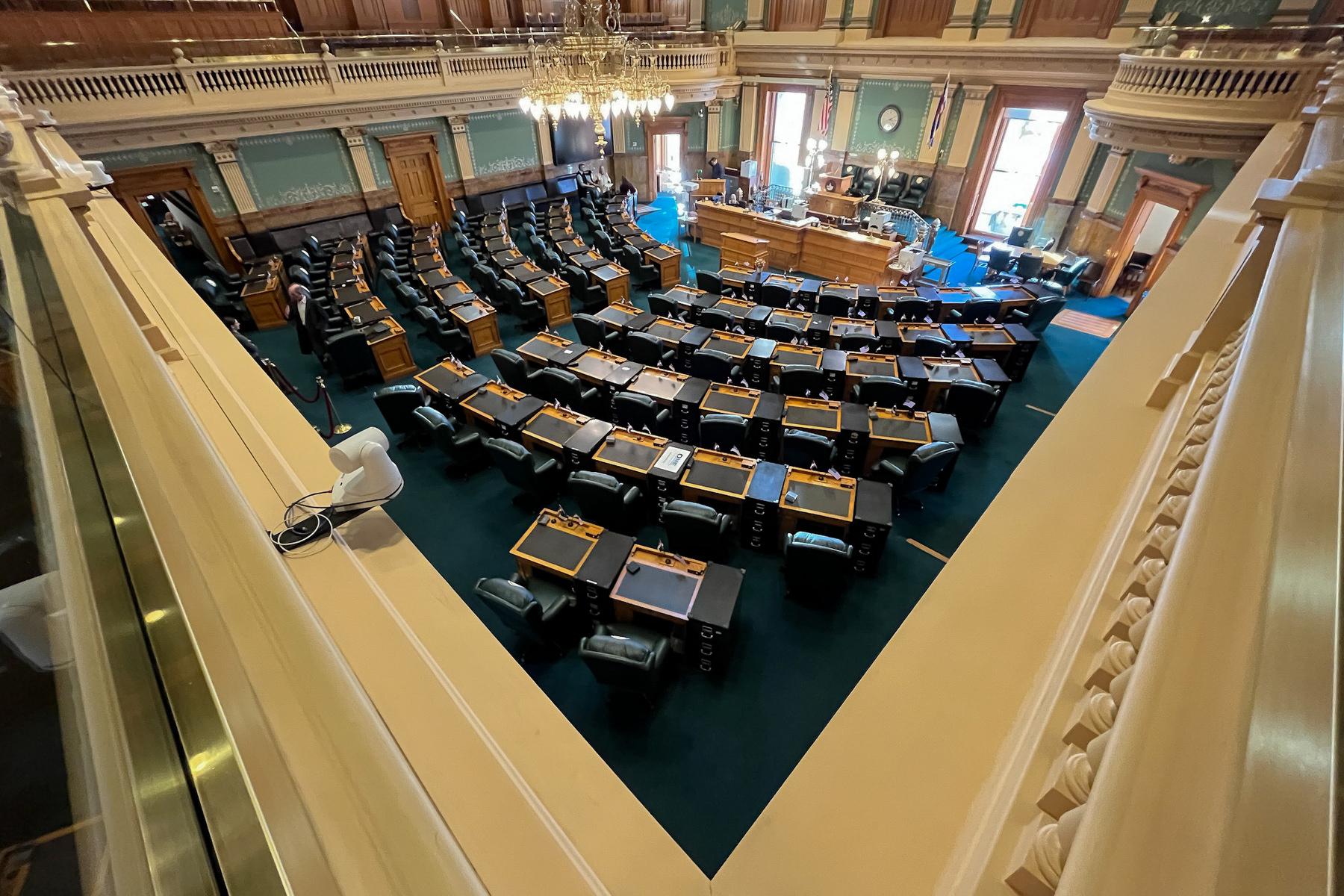
When state lawmakers first introduced a new gun control measure in February, it included a list of more than two dozen places where guns would be banned.
That original version of SB24-131 prohibited carrying a firearm — whether openly or concealed — everywhere from banks to bars, carnivals to churches, dispensaries to hospitals, and arenas to zoos, among many other locations named in the bill.
Now, the proposal has been significantly narrowed after questions from a key Democratic senator. The list of proposed “sensitive spaces” has been reduced to:
- Much of the state capitol building
- Public and private schools
- Courthouses
- Polling places
- Local government buildings, unless the local government chooses to allow firearms
Open carry is already prohibited in places like schools, courthouses and polling places, but the proposal would also forbid concealed carry.
The changes were made by the Senate Judiciary Committee, largely in response to concerns from Sen. Dylan Roberts, a Democrat. He said the new version of the bill would have stronger legal standing, even after the U.S. Supreme Court undermined the basis of many gun laws in its 2022 Bruen decision.
“It is very limited. It is very tailored. It removes many of the spaces in the introduced version of the bill,” Roberts said.
The political makeup of the Senate Judiciary Committee is split 3-2. With both of the panel’s Republicans opposed, the bill’s backers needed all the Democrats on board to keep the proposal alive.
Violations of the proposal would be misdemeanors, with first-time fines of up to $250, increasing up to $1,000 for repeat offenses.
Sen. Chris Kolker, a Democratic sponsor of the measure, said that guns make public life more dangerous.
“The presence of firearms, often escalating minor disputes into deadly encounters, has left an indelible mark in our communities,” he said at a committee hearing. “This risk magnifies when firearms are introduced into environments where our children learn and play, leading to the possibility of misfire or an accidental discharge.”
Gun rights advocates argued that the laws would prevent people from being able to defend themselves.
“Criminals do not wait for permission to legally arm themselves. And neither should the law-abiding citizens of Colorado,” Michelle Kopriva told lawmakers at a hearing.
A research review by the RAND Corporation identified only one study of how gun-free zones affect rates of violent crime, with “inconclusive” findings. Even after it was narrowed, the measure drew fierce criticism and long speeches from Senate Republicans in a lengthy floor debate on Tuesday, including questions about whether it would stand up to the Supreme Court’s new standards.
It passed a key vote in the Senate after Democrats rejected a series of Republican amendments, including proposals that would have exempted state lawmakers and their staffs, as well as teachers. If it passes a final vote in the Senate, it will head next to the House, which is also controlled by Democrats.









